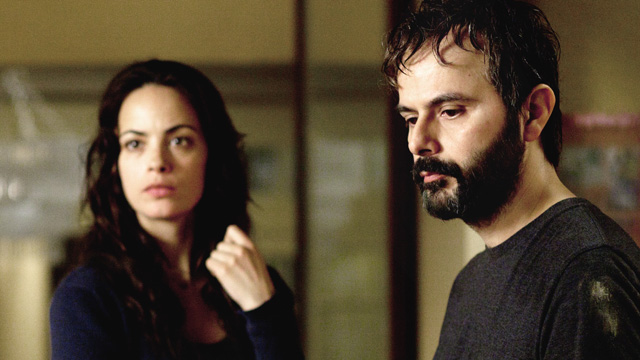
This is a guest post by Atima Omara-Alwala.
It’s in the Past, or Is It Really? A Review of The Past
We learn in The Past that not is all as it seems, and maybe all that is left in the past isn’t really. Academy Award-winning director Asghar Farhadi (2011’s The Seperation) returns with his first movie outside of Iran. Ahmad (Ali Mosaffa) returns from Iran to finalize his divorce with Marie-Anne (Berenice Bejo, 2011’s The Artist) and finds himself awkwardly sleeping at the house of her new boyfriend, which also contains her children.
Director Asghar Farhadi is Iranian, and in speaking about the film, addressed how he hopes–as someone from the East–that people from the East and the West can better understand one another through film. Certainly, The Past is, among many things, one of those movies that aims to dispel notions about his Iranian characters. First, the movie has a major female protagonist in Marie-Anne as the ex wife of Ahmad, in addition to her daughter Lucie, who is in a supporting role. Marie-Anne is a woman with a solid career as a pharmacist. Ahmad is an Iranian man, who adores children and is better with them than his soon-to-be ex-wife, and he enjoys cooking for his ex-wife and the children. The Western portrayal of Iranian men (or men from the Middle East) tends to show men as very patriarchal who treat women with disdain (eg, Not Without My Daughter). As if to ensure the viewer that Ahmad is not a one hit wonder, Marie-Anne also is in a serious relationship with a new Iranian man, Samir (Tamir Rahim) who is a single, devoted father to his son Fouad after his wife ends up in the hospital in a coma from a suicide attempt.
A web of secrets from the past threatens to destroy the lives of all the characters; how they grapple with it and deal with them (or if they do) is what makes this film riveting to watch for all viewers (as it has universal themes).
A must see by a talented director.

The Odd Couple: A Review of the Film Ida
Ida is a wonderfully-directed film by Polish director Paweł Pawlikowsk about two women learning about themselves and their family together. Anna (Agata Trzebuchowska) is a novice, an orphan brought up by nuns in a convent. Before she takes her vows, she is told of her only living relative, Wanda (Agata Kulesza), whom she seeks out to find the answers about her family.
Anna finds out she’s really not Catholic, but Jewish, according to her Aunt Wanda.
Wanda, a somber woman, wondering about what happened to her sister’s family (Anna’s parents) agrees to take a journey with her to find out what happened. It is a journey both women take that forces them to learn about each other, and it challenges each other’s beliefs.
You learn Wanda has fallen a bit in her career. Formerly a powerful attorney and judge in Communist Poland, you quickly see Wanda’s brilliance, intensity, and hardness. You see slices of what Wanda must have been when she demands answers on what happened to her sister from the family that now lives in her sister’s home. “You know I can destroy your life,” says Wanda. Anna is quiet and demure, a perfect product of her Catholic upbringing and at times clearly does not know what to make of her Aunt.
Putting a devout young sheltered Catholic woman with a wordly Polish Jewish woman is bound to create tension. When Anna quietly, but clearly, disapproves of her Aunt Wanda’s dancing, drinking, and flirting with men on one of their road trip stops, Wanda senses this and points out how Anna’s Jesus hung out with women like her (alluding to Mary Magdalene).
The saddest moment in the journey awaits them as they find out what really happened to their family. How they both deal with that tragedy and are impacted by their interactions with each other carries the last third of the film poignantly.
Shot in black and white, it resonates of a darker time in Poland. This is a must see because the story is touching and Paweł Pawlikowsk portrays the depths that are these women characters. Despite Anna being a novice on her way to being a nun and Wanda being a powerful career woman, they are not caricatures but real characters with feelings and desires who are figuring out their lives.
Atima Omara-Alwala is a political strategist and activist of 10 years who has served as staff on 8 federal and local political campaigns and other progressive causes. Atima’s work has had a particular focus on women’s political empowerment & leadership, reproductive justice, health care, communities of color and how gender and race is reflected in pop culture. Her writings on the topics have also been featured at Ms. Magazine, Women’s Enews, and RH Reality Check.
